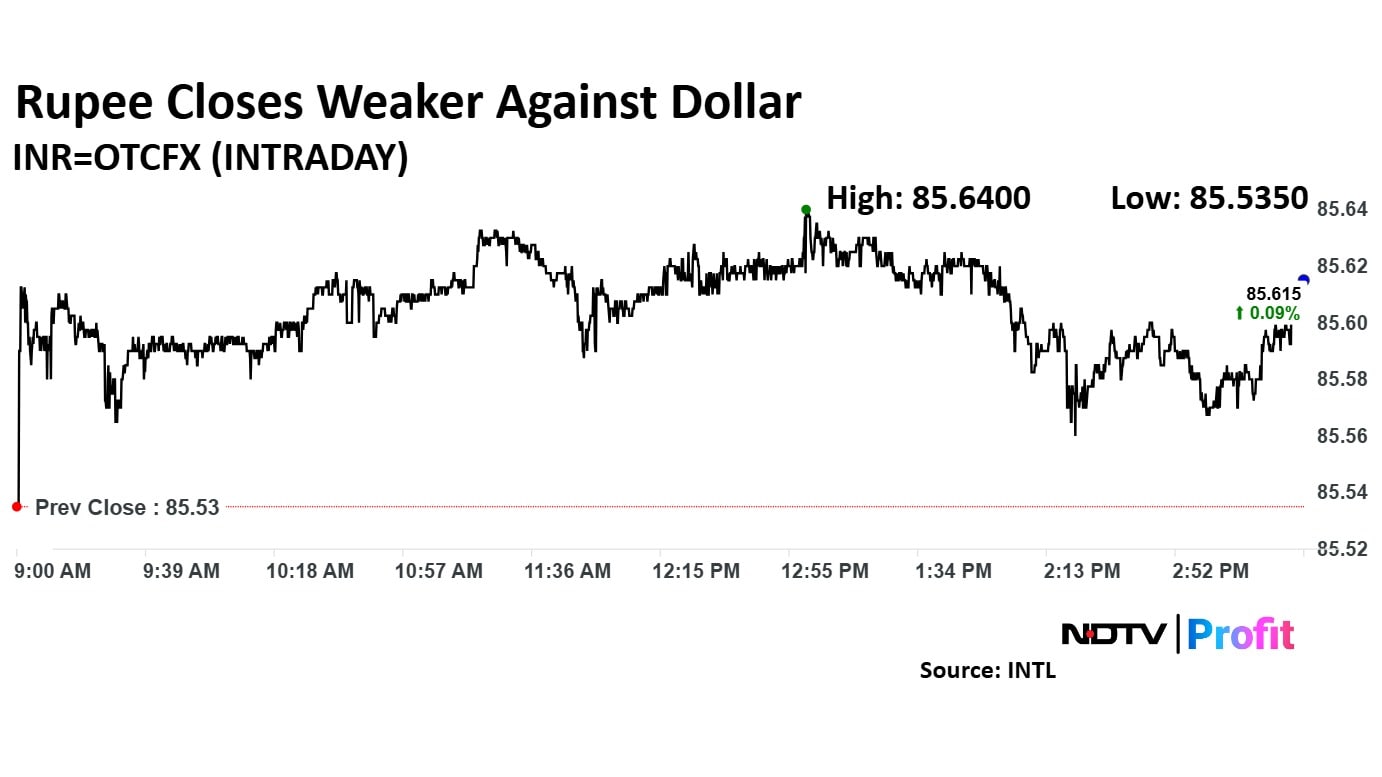 11_07_24.jpg?downsize=773:435)
On the final trading day of 2024, the Indian Rupee closed weaker against the US Dollar. It weakened by seven paise to close at 85.61 against the US dollar on Tuesday.
The domestic currency opened weaker by 5 paise at 85.59, then it further declined by 9 paise from its previous close of 85.54. The day's movement reflects ongoing pressures as the rupee continues to navigate fluctuations in global dollar strength and local demand dynamics.
The day's trading followed a sharp drop on Friday, when the rupee hit a fresh all-time low of 85.81 before recovering slightly. Month-end dollar demand, particularly from oil importers, and the overall strength of the US dollar globally contributed to the decline on Friday.
Despite the modest depreciation, experts suggest exporters remain cautious, with a stop-loss set at 85.25, as the rupee continues to face pressure from persistent dollar demand, said Anil Kumar Bhansali, Head of Treasury at Finrex Treasury Advisors. He also recommended that importers take advantage of any dips to buy, considering the ongoing volatility in the foreign exchange market.
With the rollover of positions marking the end of the year, Bhansali noted that the rupee was expected to remain volatile. Asian currencies also traded in a narrow range amid thin volumes, with the Chinese Yuan at 7.3096, the Indonesian Rupiah at 16,138, and the South Korean Won at 1,473, reflecting the subdued activity during the year-end trade.

The broader currency market remains under pressure, with global dynamics such as the strong US dollar influencing currency movements across the world. Meanwhile, the price of Brent crude oil stood at $74.33 per barrel in early trading, which continues to impact India's import costs.
Additionally, India's external debt increased by $29 billion in the September 2024 quarter, reaching $711 billion, up by 4.3%. This rise led to an increase in the external debt-to-GDP ratio from 18.8% in June 2024 to 19.4% in September 2024, further contributing to pressure on the rupee, Bhansali said.
As 2024 comes to a close, the Indian rupee remains closely tied to global market dynamics, with fluctuations in the dollar's strength and local economic factors continuing to play a key role in its performance.
Essential Business Intelligence, Continuous LIVE TV, Sharp Market Insights, Practical Personal Finance Advice and Latest Stories — On NDTV Profit.























